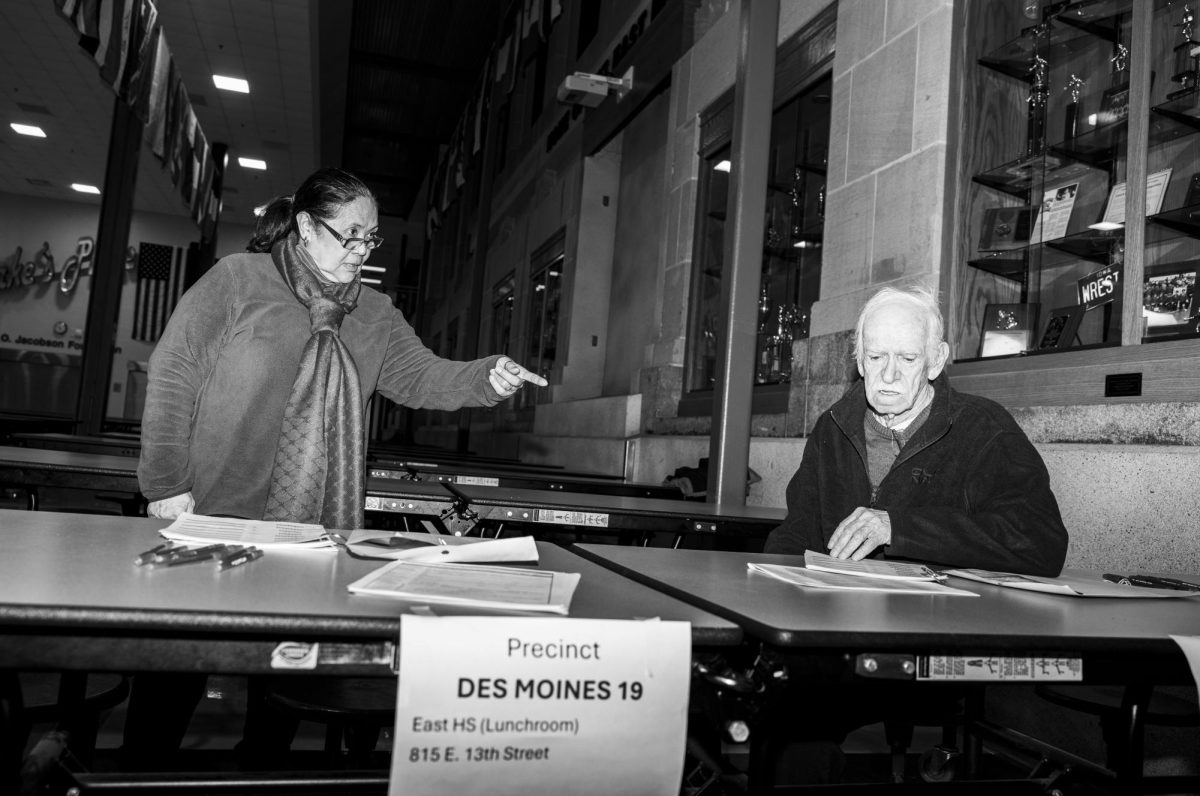Over 100,000 Iowans braced frigid temperatures and snow-laden roads to caucus in the Iowa Republican caucuses on Monday, however, the number is on the decline from previous caucuses.
The freezing temperatures and a large lead for former President Donald Trump resulted in 15 percent of Iowa’s registered Republican voters participating on Monday night.
With the highest temperature recorded by the National Weather Service office in Des Moines barely rising above zero, Monday was the coldest caucus in Iowa history.
In an interview with the DI before the caucuses, University of Iowa political professor Tim Hagle said it was hard to predict which demographic of voters would be most affected by the weather.
Hagle predicted the weather would lead to a lower turnout among older voters.
“You may have some of those folks that may decide to not go out,” Hagle said. “But on the other hand, the older voters are also the ones that are usually the most determined to vote.”
The UI professor said younger voters typically turn out in lower numbers, but the university’s move to make classes virtual on Tuesday could provide a boost in turnout among college voters.
However, student precincts saw record low turnout on campus Monday. Johnson County also experienced a substantial lull in voter turnout. Nearly 6,000 caucusgoers cast a ballot in the 2016 Iowa caucuses. This year, a little more than 3,000 residents of the county participated in the caucuses.
The number of caucusgoers braving the elements on Monday night was only 15 percent of Iowa’s nearly 752,200 registered Republicans. A report from the Republican Party of Iowa showed 110,298 Iowans faced extremely low temperatures and hazardous road conditions to caucus at 1,657 precincts across the state.
Before the blizzard and severely low temperatures, some of the campaigns prepped for a record turnout of more than 200,000.
This year’s caucus numbers fall short of past participation, setting a record low from 2000. In the 2016 Republican caucus, an all-time high was reached with roughly 187,000 votes counted.
Despite the decrease in turnout, Republican Party of Iowa Chairman Jeff Kaufmann released a statement thanking voters for their participation.
Kaufmann’s statement attributed Iowan’s participation in the caucuses to their frustration with Biden’s administration and enthusiasm for the Republican Party’s “deep bench of talent in the 2024 race.”
“I could not be prouder to be an Iowan than I am tonight,” Kaufmann said in the statement on Monday night. “Iowans coming out en masse demonstrates our people’s resilience and determination, as well as their confidence in the most transparent democratic process in the country.”
Trump trounced the other candidates with 51 percent of the vote. In the ‘race to second place,’ Florida Gov. Ron DeSantis led with 21 percent and former U.N. Ambassador Nikki Haley rounded out the night with 19 percent. Biotech entrepreneur Vivek Ramaswamy snatched less than 8 percent of the vote and dropped out of the race Monday night.
Former Arkansas Gov. Asa Hutchinson, with less than 1 percent of support from caucusgoers, dropped out of the race on Tuesday.
Iowa Democrats also held a caucus Monday night, but no decisions about the presidential candidate were made.
Instead, the party strayed from the process of previous years, holding the caucus to conduct administrative party business and to begin the process of choosing delegates to the national conventions.
However, Democratic caucusgoers did not vote for their pick to represent the party on the 2024 presidential ballot. The party will vote for a nominee through a mail-in voting process, which began on Jan. 12 and ends on Super Tuesday on March 5.



